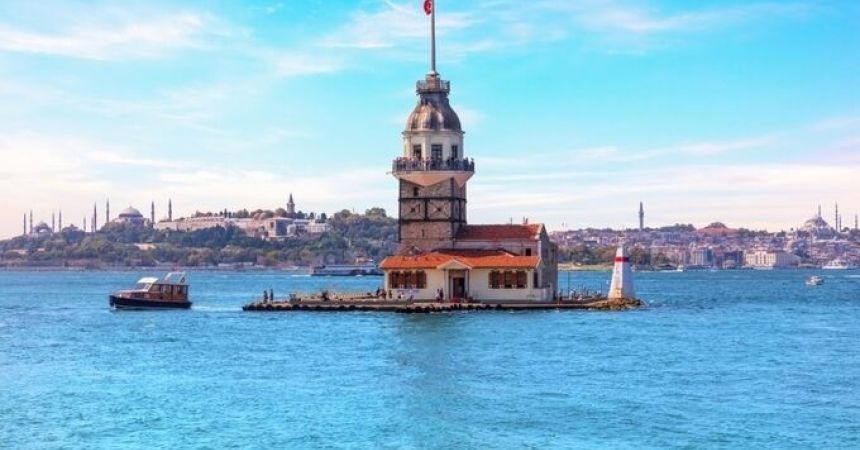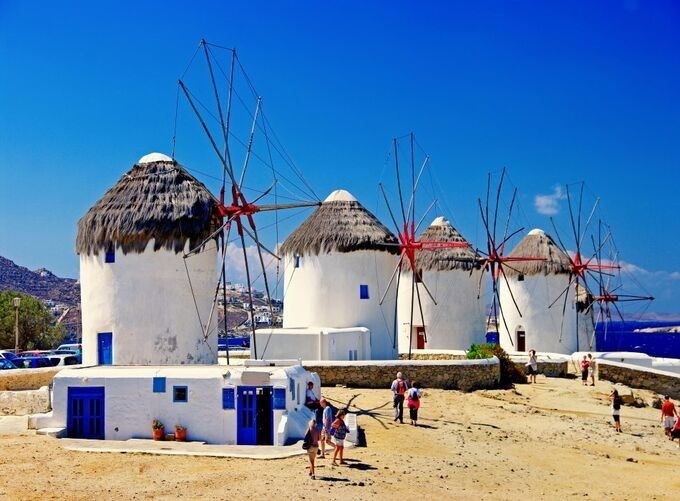
Can You Do Greece and Turkey in One Trip? | Guide
Planning an international trip often involves a significant amount of research and decision-making, especially when the journey spans multiple countries. Greece and Turkey, two countries with rich histories, stunning landscapes, and vibrant cultures, are often considered ideal destinations for a combined trip. But can you really do Greece and Turkey in one trip? Absolutely! This guide will provide you with detailed information on how to seamlessly integrate both countries into a single unforgettable travel experience.
Why Combine Greece and Turkey?
Cultural Richness
Both Greece and Turkey boast ancient civilizations that have significantly influenced the course of history. Greece, the cradle of Western civilization, offers a plethora of archaeological sites, from the Acropolis in Athens to the ancient ruins of Delphi. Turkey, straddling both Europe and Asia, is home to iconic landmarks such as the Hagia Sophia in Istanbul and the ancient city of Ephesus.
Geographic Proximity
Greece and Turkey share a maritime border in the Aegean Sea, making it convenient to travel between the two. With numerous flight and ferry connections, hopping from one country to the other is relatively easy and time-efficient.
Diverse Experiences
Combining Greece and Turkey allows travelers to experience a diverse range of landscapes, activities, and cultures. From the sun-soaked beaches of the Greek islands to the bustling bazaars of Istanbul, and from the serene monasteries of Meteora to the fairy-tale landscapes of Cappadocia, a trip encompassing both countries promises a variety of unforgettable experiences.
Planning Your Turkey and Greece Itinerary
Entry Requirements
Before planning your itinerary, ensure you are aware of the entry requirements for both countries. Greece is a member of the Schengen Area, so travelers from many countries may require a Schengen visa. Turkey, on the other hand, offers an e-Visa option for many nationalities. Ensure you meet the visa requirements for both countries before booking your trip.
Best Time to Visit
The best time to visit Greece and Turkey is during the shoulder seasons of spring (April to June) and autumn (September to October). During these periods, the weather is pleasant, and tourist crowds are thinner compared to the peak summer months. However, both countries can be visited year-round, each season offering its own unique attractions.
Sample Itinerary: Greece and Turkey in 14 Days
Day 1-3: Athens, Greece
Day 1: Arrival in Athens
- Arrive in Athens, the capital of Greece, and settle into your accommodation.
- Spend the evening exploring the vibrant Plaka district, known for its charming streets, local shops, and traditional tavernas.
Day 2: Historical Athens
- Visit the Acropolis, the Parthenon, and the Acropolis Museum.
- Explore the Ancient Agora and the Temple of Hephaestus.
- Stroll through Monastiraki and Syntagma Square.
Day 3: Day Trip to Delphi
- Take a day trip to Delphi, the ancient sanctuary and home to the Oracle of Apollo.
- Visit the archaeological site and the Delphi Museum.
Day 4-6: Santorini, Greece
Day 4: Travel to Santorini
- Take a flight or ferry from Athens to Santorini.
- Upon arrival, relax and enjoy the stunning views of the caldera from your hotel.
Day 5: Exploring Santorini
- Visit the picturesque villages of Oia and Fira.
- Explore the ancient ruins of Akrotiri.
- Relax on the unique volcanic beaches, such as Red Beach and Kamari Beach.
Day 6: Wine Tasting and Sunset
- Visit some of Santorini’s renowned wineries for a wine-tasting tour.
- Enjoy the famous sunset in Oia.
Day 7-9: Istanbul, Turkey
Day 7: Travel to Istanbul
- Fly from Santorini to Istanbul.
- Settle into your accommodation and take a leisurely evening stroll around Sultanahmet.
Day 8: Historical Istanbul
- Visit the Hagia Sophia, the Blue Mosque, and Topkapi Palace.
- Explore the Basilica Cistern.
- Wander through the Grand Bazaar.
Day 9: Bosphorus Cruise and Modern Istanbul
- Take a Bosphorus cruise to see the city from the water.
- Visit Dolmabahce Palace.
- Explore the trendy Beyoglu district and Istiklal Street.
Day 10-11: Cappadocia, Turkey
Day 10: Travel to Cappadocia
- Fly from Istanbul to Nevsehir or Kayseri, the gateways to Cappadocia.
- Check into your cave hotel and relax.
Day 11: Exploring Cappadocia
- Take a hot air balloon ride at sunrise to see the fairy chimneys and unique landscapes.
- Visit the Goreme Open Air Museum and the underground city of Derinkuyu.
- Hike through the valleys, such as Love Valley and Pigeon Valley.
Day 12-14: Ephesus and the Turkish Riviera
Day 12: Travel to Ephesus
- Fly or take a bus to Izmir and travel to the nearby town of Selcuk.
- Visit the ancient city of Ephesus, including the Library of Celsus and the Great Theatre.
Day 13: Pamukkale
- Take a day trip to Pamukkale to see the travertine terraces and the ancient city of Hierapolis.
- Relax in the thermal pools.
Day 14: Travel to Bodrum
- Travel to Bodrum, a popular resort town on the Turkish Riviera.
- Spend your final day relaxing on the beach or exploring the Bodrum Castle and the Underwater Archaeology Museum.

Travel Tips and Considerations
Transportation in Turkey and Greece
Flights: Numerous flights operate between major cities in Greece and Turkey, making air travel the most convenient option for longer distances. Budget airlines often provide affordable fares.
Ferries: Several ferry routes connect Greek islands with the Turkish coast, such as the route from Rhodes to Marmaris or from Kos to Bodrum. Ferries can be a scenic and enjoyable way to travel between the two countries.
Buses and Trains: For shorter distances within each country, buses and trains are reliable and affordable options. Turkey’s extensive bus network and Greece’s train services make overland travel convenient.
Accommodation in Turkey and Greece
Both Greece and Turkey offer a wide range of accommodation options, from budget hostels and guesthouses to luxury hotels and resorts. In popular tourist areas, it’s advisable to book your accommodation in advance, especially during peak travel seasons.
Local Cuisine in Turkey and Greece
Sampling the local cuisine is an essential part of any trip to Greece and Turkey. In Greece, don’t miss out on dishes like moussaka, souvlaki, and fresh seafood. In Turkey, indulge in kebabs, mezes, and baklava. Both countries are known for their hospitality and delicious food, so be sure to explore local eateries and street food.
Language and Communication in Turkey and Greece
Greek is the official language of Greece, while Turkish is spoken in Turkey. English is widely spoken in tourist areas, but learning a few basic phrases in Greek and Turkish can enhance your travel experience and show respect for the local culture.
Currency in Turkey and Greece
Greece uses the Euro (EUR), while Turkey uses the Turkish Lira (TRY). Credit cards are widely accepted in both countries, but it’s always a good idea to carry some cash for smaller establishments and markets. Currency exchange services are readily available in major cities and tourist areas.
Safety and Health
Both Greece and Turkey are generally safe for travelers. However, it’s always important to take standard precautions, such as keeping an eye on your belongings and avoiding isolated areas at night. Ensure you have travel insurance that covers medical expenses and be aware of any health advisories for the regions you plan to visit.
Must-See Destinations in Greece and Turkey
Places to visit in Greece
Athens: The capital city, known for its ancient landmarks such as the Acropolis, the Parthenon, and the Agora.
Santorini: A picturesque island famous for its stunning sunsets, white-washed buildings, and volcanic beaches.
Mykonos: Known for its vibrant nightlife, beautiful beaches, and charming old town.
Crete: Greece’s largest island, offering diverse landscapes, ancient ruins, and traditional villages.
Meteora: Home to monasteries perched on towering rock formations, offering breathtaking views and a sense of serenity.
Places to visit in Turkey
Istanbul: A city that bridges Europe and Asia, known for its historical sites like the Hagia Sophia, Blue Mosque, and Topkapi Palace.
Cappadocia: Renowned for its unique rock formations, cave dwellings, and hot air balloon rides.
Ephesus: One of the best-preserved ancient cities, featuring the Library of Celsus, the Great Theatre, and the Temple of Artemis.
Pamukkale: Famous for its white travertine terraces and thermal waters.
Antalya: A stunning coastal city known for its beautiful beaches, historic old town, and nearby ancient ruins.
Cultural Etiquette
Respecting local customs and traditions is essential when traveling. In Greece, it’s polite to greet people with a handshake and a friendly “Kalimera” (Good morning) or “Kalispera” (Good evening). In Turkey, a warm “Merhaba” (Hello) and a slight nod of the head are common greetings. Dress modestly when visiting religious sites, and always ask for permission before taking photos of people.
Combining Greece and Turkey: A Rewarding Experience
Travel to Greece and Turkey in one trip offers a unique opportunity to explore two diverse yet complementary cultures. From the ancient ruins and stunning landscapes to the warm hospitality and delicious cuisine, a journey through these neighboring countries promises unforgettable memories. By carefully planning your itinerary, being mindful of visa requirements, and embracing the local culture, you can create a seamless and enriching travel experience.
Explore Turkey and Greece in One Trip
Traveling between Greece and Turkey is not only feasible but also highly rewarding. The proximity, cultural richness, and diverse experiences offered by both countries make them ideal for a combined trip. Whether you’re exploring ancient ruins, enjoying beautiful beaches, or immersing yourself in vibrant city life, Greece and Turkey have something to offer every traveler.
So, can you do Greece and Turkey in one trip? Absolutely. With proper planning, an open mind, and a spirit of adventure, you can embark on a journey that will leave you with cherished memories and a deeper appreciation for these two incredible destinations. Happy travels!



